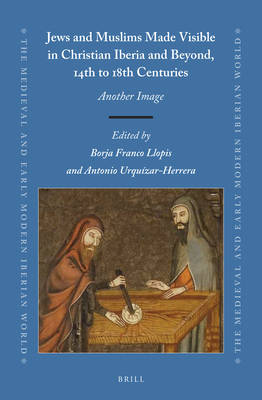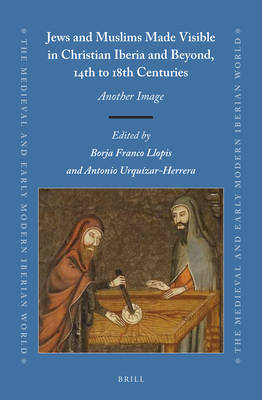
- Afhalen na 1 uur in een winkel met voorraad
- Gratis thuislevering in België vanaf € 30
- Ruim aanbod met 7 miljoen producten
- Afhalen na 1 uur in een winkel met voorraad
- Gratis thuislevering in België vanaf € 30
- Ruim aanbod met 7 miljoen producten
Zoeken
Jews and Muslims Made Visible in Christian Iberia and Beyond, 14th to 18th Centuries
Another Image
€ 236,45
+ 472 punten
Omschrijving
This volume aims to show through various case studies how the interrelations between Jews, Muslims and Christians in Iberia were negotiated in the field of images, objects and architecture during the Later Middle Ages and Early Modernity. . By looking at the ways pre-modern Iberians envisioned diversity, we can reconstruct several stories, frequently interwoven with devotional literature, poetry or Inquisitorial trials, and usually quite different from a binary story of simple opposition. The book's point of departure narrates the relationship between images and conversions, analysing the mechanisms of hybridity, and proposing a new explanation for the representation of otherness as the complex outcome of a negotiation involving integration.
Contributors are: Cristelle Baskins, Giuseppe Capriotti, Ivana Čapeta Rakic, Borja Franco Llopis, Francisco de Asís García García, Yonatan Glazer-Eytan, Nicola Jennings, Fernando Marías, Elena Paulino Montero, Maria Portmann, Juan Carlos Ruiz Souza, Amadeo Serra Desfilis, Maria Vittoria Spissu, Laura Stagno, Antonio Urquízar-Herrera.
Contributors are: Cristelle Baskins, Giuseppe Capriotti, Ivana Čapeta Rakic, Borja Franco Llopis, Francisco de Asís García García, Yonatan Glazer-Eytan, Nicola Jennings, Fernando Marías, Elena Paulino Montero, Maria Portmann, Juan Carlos Ruiz Souza, Amadeo Serra Desfilis, Maria Vittoria Spissu, Laura Stagno, Antonio Urquízar-Herrera.
Specificaties
Betrokkenen
- Uitgeverij:
Inhoud
- Aantal bladzijden:
- 404
- Taal:
- Engels
- Reeks:
- Reeksnummer:
- nr. 67
Eigenschappen
- Productcode (EAN):
- 9789004390164
- Verschijningsdatum:
- 9/05/2019
- Uitvoering:
- Hardcover
- Formaat:
- Genaaid
- Afmetingen:
- 157 mm x 236 mm
- Gewicht:
- 703 g

Alleen bij Standaard Boekhandel
+ 472 punten op je klantenkaart van Standaard Boekhandel
Beoordelingen
We publiceren alleen reviews die voldoen aan de voorwaarden voor reviews. Bekijk onze voorwaarden voor reviews.







